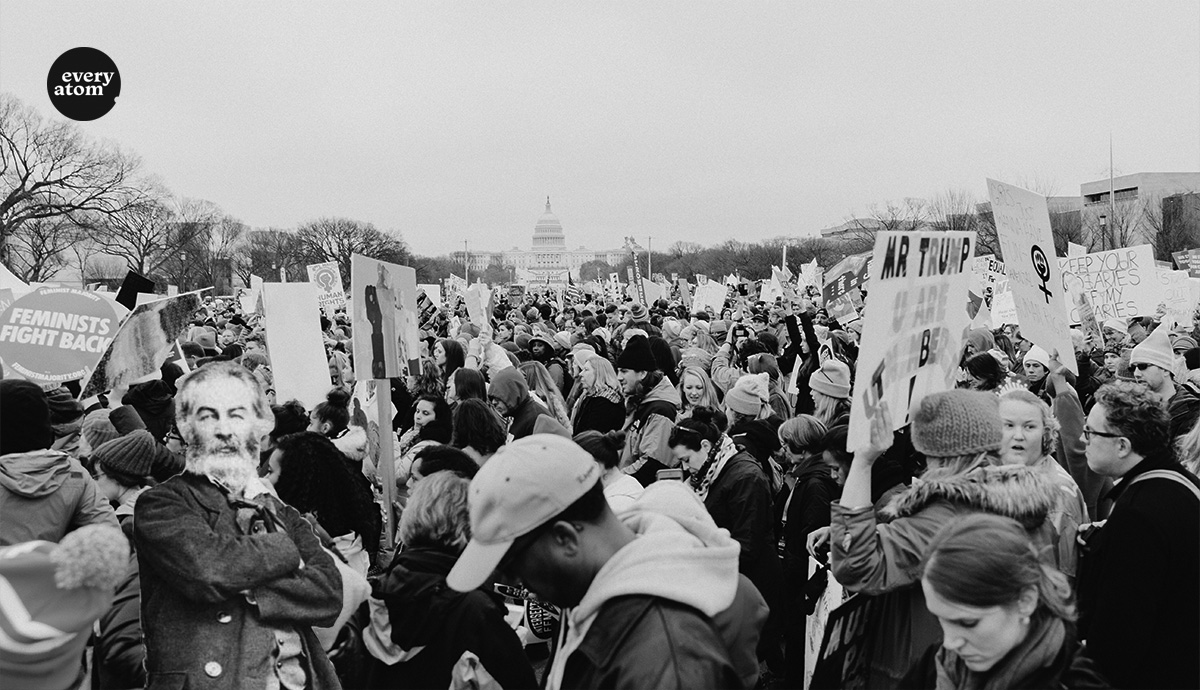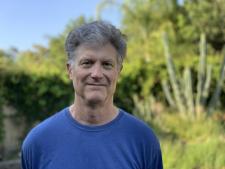Introduction to Every Atom by project curator Brian Clements
I speak the password primeval….I give the sign of democracy.
I read this curious line again, and wonder again at its meaning. Though it sounds emphatic and declarative, I suppose it is supposed to send one brooding, rather than acceding to the abrupt words at first glance. I cannot accept that this line is mainly Whitman’s self-aggrandizement as house poet. I puzzle: Why would democracy be the original and everlasting answer to things, somehow and somewhere, as if spoken to some venerable gatekeeper? Yes, I’ve read “Democratic Vistas” and well know the lesson that democracy is much more than a political apparatus. But why sing and celebrate human equality so wildly? Why primeval? To affirm each and all, not as members of a mass, but as individuals in their singularity, including the wicked, strikes me as impossible and preposterous. It cannot be construed and countenanced as just lofty mood or aspirational conceit. I hazard a translation, a reduction, for my own purposes. I don’t read this paean, lauding an incomprehensibly capacious notion of equality, as traceable to the miracle of creation. Whitman isn’t a natalist or vitalist. Elsewhere he calls for great poems of death, but mortalist democracy seems too morbid and matter-of-fact. “Song of Myself” starts to make sense for me when I imagine Whitman as an Orphic poet, gathering the snippets and stories of many shades in a fictive underworld, thus following the infernal examples of Homer, Virgil, Dante, Christine de Pizan, and many other fellow-travelers, a veritable Dead Poets Society, but now conjuring a mock-netherworld reserved not just for epic pilgrims, poets, heroes, warriors, victims and villains, but everyone, and a place designed not primarily for damnation, or compensation, or redemption, but as an all-inclusive showcase or agora for all, which is the point. Maybe that plutonic vision, unguarded, attests to the greater justice of democracy. I don’t know. It’s a provisional and fleeting insight. Reading “Song of Myself” under such a spell helps me, however, better grasp Hannah Arendt’s cryptic claim that the framers of the U.S. Constitution were more influenced, in their rather presumptuous attempt at concocting a republican people, by Virgil’s Aeneid than by the Bible.




